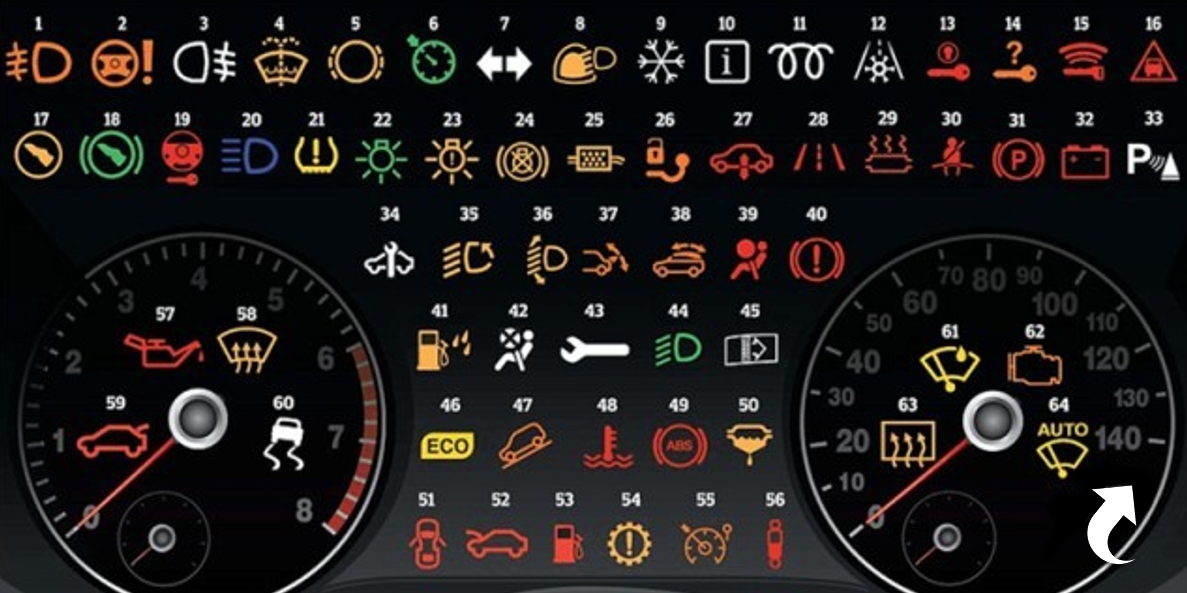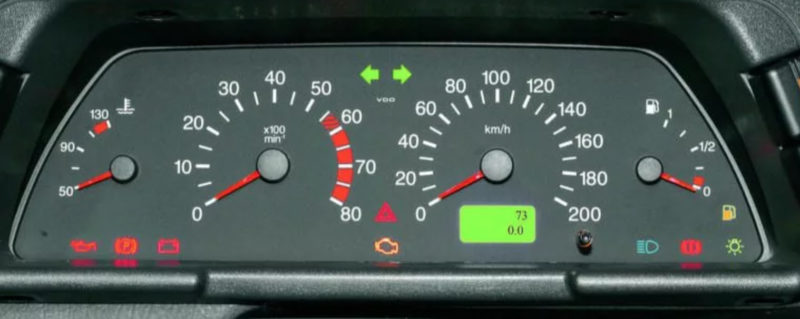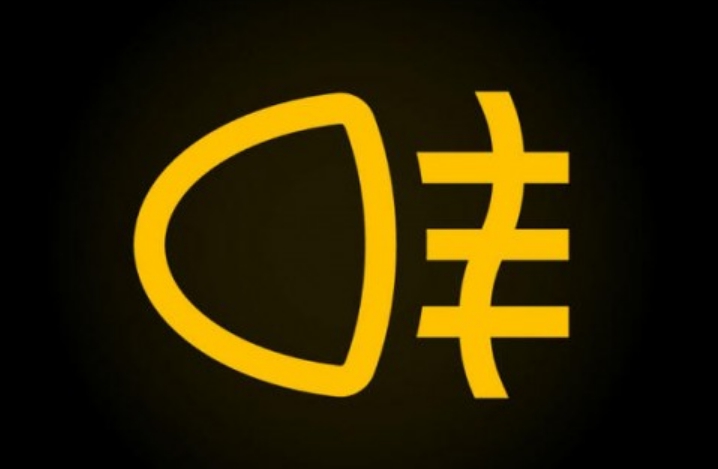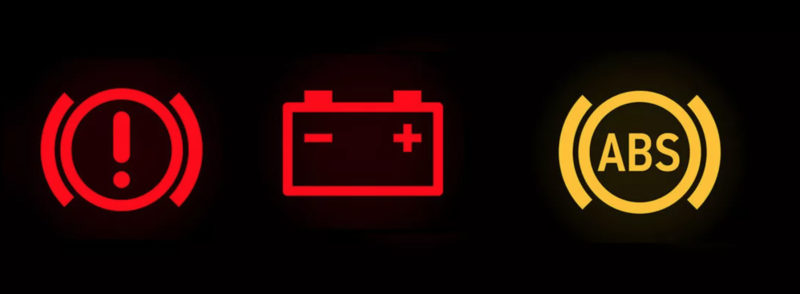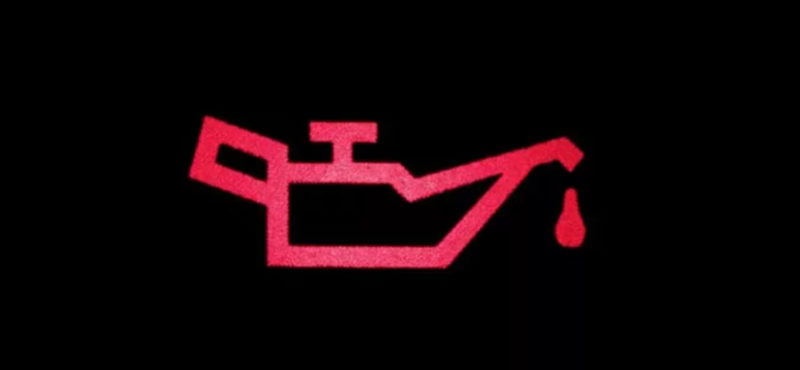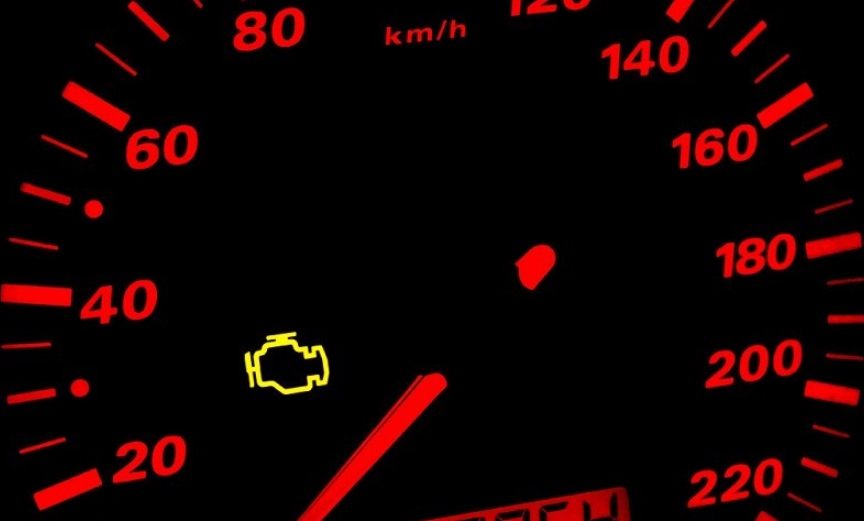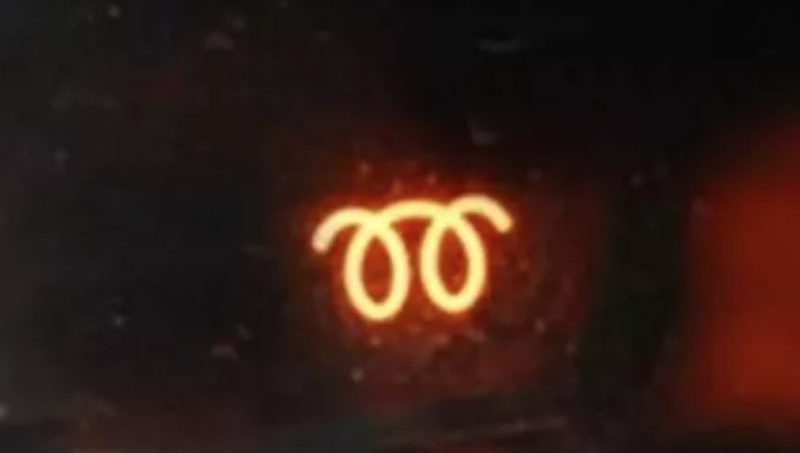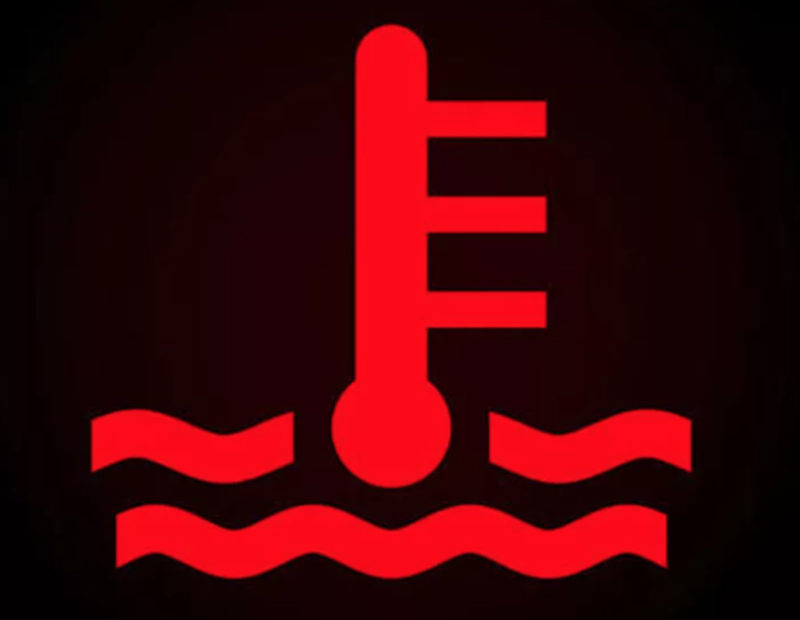The designation of the bulbs on the dashboard
In modern vehicles, the necessary information about the operation of all systems is displayed on the instrument panel. For example, the fog lights icon indicates that they are working, a different light comes on when the lights are on, etc. There are also symbols that warn of malfunctions, if they light up, it is better to stop and not continue driving. It is important to understand the basic designations, this will ensure the convenience of driving and save a lot of problems.
Meaning of the lights on the dashboard
All indicators can be divided into several groups depending on their purpose. This simplifies orientation in the signals and allows you to quickly understand what this or that symbol says. First of all it is worth to understand the colors of the lights, it is the easiest way to orient yourself in any unforeseen situation, even if the exact meaning is not clear.
Color designation of the icons on the dashboard
This option of marking is used by all car manufacturers, which simplifies the operation of the driver who first got behind the wheel of the car. The color indication can be divided into three segments:
- Red lights indicate serious malfunctions or breakdowns. If one of these icons lights up, you need to stop and find out the cause or tow the car to the nearest diagnostic station. If you continue driving, the entire system may fail, and in some cases create a danger to surrounding drivers as well.
- The green and blue options tell you that this or that system is on and operating normally. They are informational elements, which do not warn of danger and are necessary for control of equipment operation.
- Yellow as well as orange warn the driver of malfunctions or faults that could lead to serious damage if not taken care of. In many modern cars such signals are accompanied by the transition of the engine into the emergency mode, which limits speed and dynamics. Therefore, you should not drive with such indicators either.
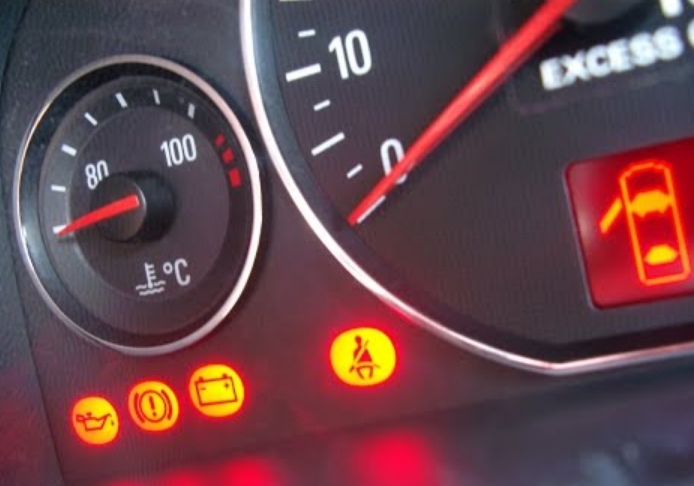
When buying a car, you should pay attention to the light bulbs on the panel. And if the car is already purchased, you should study the manual to know what icons are in this model and what they usually mean.
Fog lights, dipped beam and other lights system indicators
These symbols are most commonly used when driving, as they serve to alert you to the operation of the light and lighting system. The basic elements are as follows:
- Two green arrows, can be either together or separately. They work when the turn signal light is on in the corresponding direction. If both flash at the same time, it means that the alarm is functioning.Turn indicators on VAZ 2110
- A green headlight with beams crossed by a wavy line suggests that the fog lights are on. Moreover, there may be separate indicators for the front and rear of the car, they are distinguished by color.A universal option, indicating fog lights in almost all cars.
- Two small green lights pointing in different directions signal the working parking lights.The parking lights are on.
- A symbol in the form of a blue headlight appears when the high beam is on.High beam is on.
- The light bulb symbol is usually the headlight symbol on the dashboard. It tells you that the dipped beam is on. In many models, a signal goes off after the ignition is turned off so that the driver doesn't forget to turn the lights off.The dipped beam indicator may also look like this.
- If a yellow or green light in the form of a lamp with an exclamation mark inside or a crossed out symbol comes on, it indicates a malfunction in one of the elements.
In newer cars, there may also be additional signals to warn of automatic light activation, adaptive light system activation, corrector malfunction, etc.
Fault indicators
This group is designed to warn of malfunctions, with which it is better not to drive. The most common symbols you can see on the panel are:
- Battery icon.. Always illuminated when starting the engine, it goes out afterwards. If the light is still on, it may be due to several reasons. Most often the problem is due to a dead battery, insufficient alternator charge level, or poor drive belt tension.
- The letters SRS or the passenger airbag symbol on top prompts a malfunction in this system. In an emergency, the airbags will not go off, this could be caused by problems with wiring, sensors or other elements.
- The red oil light indicates that the system pressure is below the minimum limit. It may also indicate insufficient lubrication or lubricant leakage.
- A group of brake system indicators can consist of several items. The letter "P" in the red circle tells you that the machine is not off the handbrake. An exclamation mark in a circle indicates brake malfunctions or the fluid level in the expansion tank has dropped below the minimum.
- The motor silhouetteThe engine silhouette, or check engine, as it is also called. Can be different colors and configurations, but always indicates a malfunction in the engine management system or the need for maintenance. Different brands have different systems attached to this indicator, it is better to study the manual.Do not drive with a lit check, even if at first glance everything is working fine.
- The ABS"should illuminate when you start up and then go out. If it is lit, it indicates that the system is not working. Most often, it is a problem with the control unit or one of the sensors installed in the wheel hubs.
- The symbol representing a spiral is used in diesel engines and indicates the operation of the glow plugs. It should extinguish after the cylinders are warmed up. If it does not, you should look for a problem in the engine or one of the glow plugs is out of order.
- Image of thermometer in water. If a red light of this type has appeared, the coolant temperature has exceeded the permissible norm. It is necessary to stop immediately and check the system for leaks, as well as check the level in the cooling system. Some cars have a blue light, it works until the engine warms up to working temperature.
By the way! In many models of cars, the oil pressure and coolant temperature lights are located on the appropriate scale. The red light on the far right simply lights up there.
Safety system and auxiliary components
This is an extensive group, which may include different symbols, all depending on the car manufacturer and year of manufacture. It is the main list that is found most often and is of great importance in the operation of the car:
- Gear with an exclamation point inside. If it is red, it indicates a problem with the engine or automatic transmission. If it is yellow, then some units in the automatic are out of order or it has overheated and the system works in emergency mode.
- An emblem with a picture of a car and a keyor lock, as well as a large red dot indicates that the engine is blocked. This is due to a malfunction of the immobilizer or a malfunction of the engine starting procedure. Even if the car starts, you will not be able to drive it because it will stall after a short time.
- The exclamation mark in the yellow triangle signals that the stabilization system is not working properly.
- If there is a steering wheel icon next to the exclamation pointIf there is an exclamation point next to the exclamation point, there is a malfunction of the power steering or electric power steering. It may also indicate other problems with the steering mechanism.
- A yellow exclamation mark in a circle could indicate that the brake force distribution system is not working properly or that the fluid level is below the minimum level.
- A circle with dashed lines on the sides will illuminate when the front brake pad wear sensor is activated.
- A silhouette of the catalytic converter with a vapor on top indicates it is overheated or not working properly. It may also be clogged with soot.
- A motor silhouette with a downward arrow indicates that the horsepower of the powertrain has been reduced. More often than not, computer diagnostics are required to identify the malfunction.
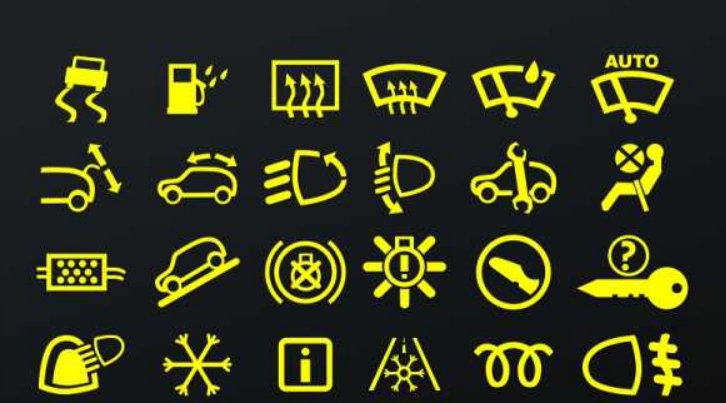
Very often it is possible to bring the engine out of emergency mode by stopping the machine and waiting for 30-60 seconds. Sometimes the indicators light up not because of malfunctions, but because of malfunctions in the control system.
What else you need to know about the indication system
To rule out any problems, it is worth periodically checking the lights. When you turn on the lights, the corresponding icon should light up, this applies to the dipped or high beam. It is necessary to remember also that if the front fog lights and rear fog lights are turned on separately, then the indicators are different.
There are cases when the emblem on the dashboard does not light up when the lights are on. The first thing to do is to check if the headlights are working. If they are okay, then most often the cause is a blown bulb. You need to remove the dashboard and replace it. Sometimes the sensors fail or there are problems with the wiring.
The video describes the detailed deciphering and meaning of the icons.
From time to time, you should check the panel to see if the lights are working. If any indicator fails, the driver won't know if the engine or box is overheating, which will lead to serious breakdowns.
In cars with an on-board computer, explanatory messages often appear on the display along with the signals on the panel. This makes it easier to find the problem and helps you figure out the cause faster.
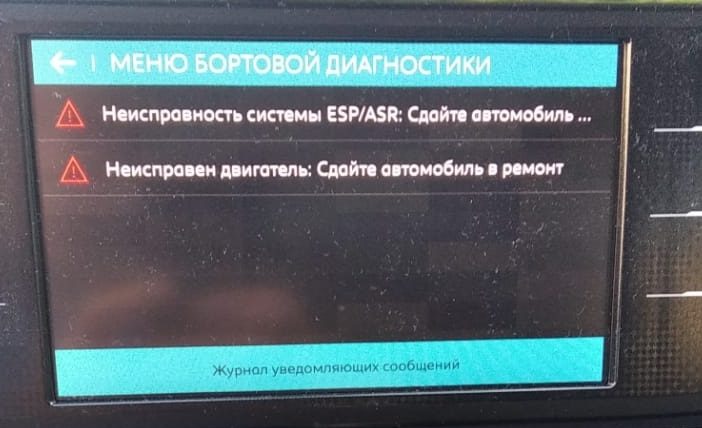
Each manufacturer may have different indicators, especially the service and information functions. But the basic elements regarding safety and fault prevention are always the same. If you understand them, you can monitor the operation of the systems and quickly identify a problem in almost any car.
